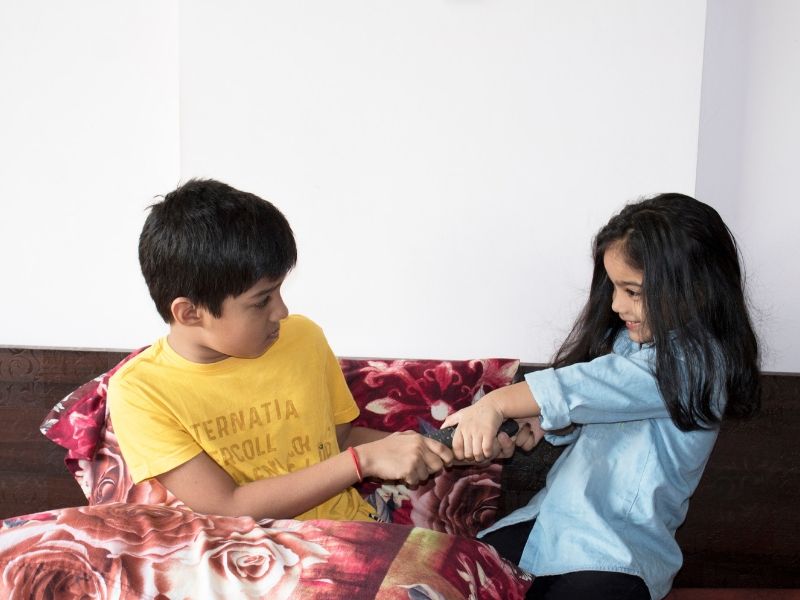
Sibling fights is a common sight in many families. It can be quite disturbing for parents to watch their kids pick on each other for trivial issues. Conflicts spoil peace and resolving them is stressful for everyone. Many parents are in a fix as to what to do when kids are at each other’s throats and the living room looks more like a venue for a wrestling match. The best way to tackle the situation is to maintain a cool demeanor and take measures to promote peace at home and help siblings get along.
Discuss solutions with kids and resolve problem
As children grow older, they usually become self-centred and are not comfortable with sharing their things even with the siblings. It could be their clothes, room, toys or even books that lead to fights and arguments. Be proactive and hold discussions with kids on how to love and share. Educate them on various ways to resolve issues rather than fighting. Teach kids that unity among siblings is very important.
Do not pay attention
Most sibling fights are not meaningful and end quickly on their own. Adult intervention delays the process of children working it out themselves. Most kids fight to gain attention from the elders. So parents can first try the ‘no pay attention’ strategy. If it does not help, only intervene to sort the problem. If adults ignore, then fighting becomes a less tempting strategy for kids.
Maintain calm demeanour under pressure
When children begin to fight or discussions reach higher decibels, just exhibit a calm demeanour. Once they are over with the fight you can intervene and advise them. However trying to stop them when they are aggressively fighting is not a good idea. After their fights speak to both of them, give a patient listening ear, do not take sides, and rather resolve the issue in a calm manner.
Pay attention to your own reaction and intervention
Kids observe their parents’ response to situations when their tempers are flaring and also when they are offended. So pay attention to your own reactions especially when you are angry, and how you behave with people around you. Kids watch how adults behave and act when they are angry, disagree with something or are offended. Displaying temper tantrums, yelling, shouting in front of your kids, will give them thumbs up to do the same. It is better to observe ourselves first before correcting the kids. Parents should attempt to become role models.
Treat all kids equal and reprimand them equally
It is important to reprimand the kids if they do not listen to you. After the fight, stop labelling the kids as victims or bullies. Treat both of them the same way. Punishments should also be the same. Many a times children irrespective of the advice, continue to pick on small issues and make them a big deal. In these cases, parents should impose small punishments such as taking away a certain new privilege endowed on them recently, or limit their outdoor fun time. Severe punishments escalate a child’s angry feelings and cause them to act out more. So watch out on that front.























